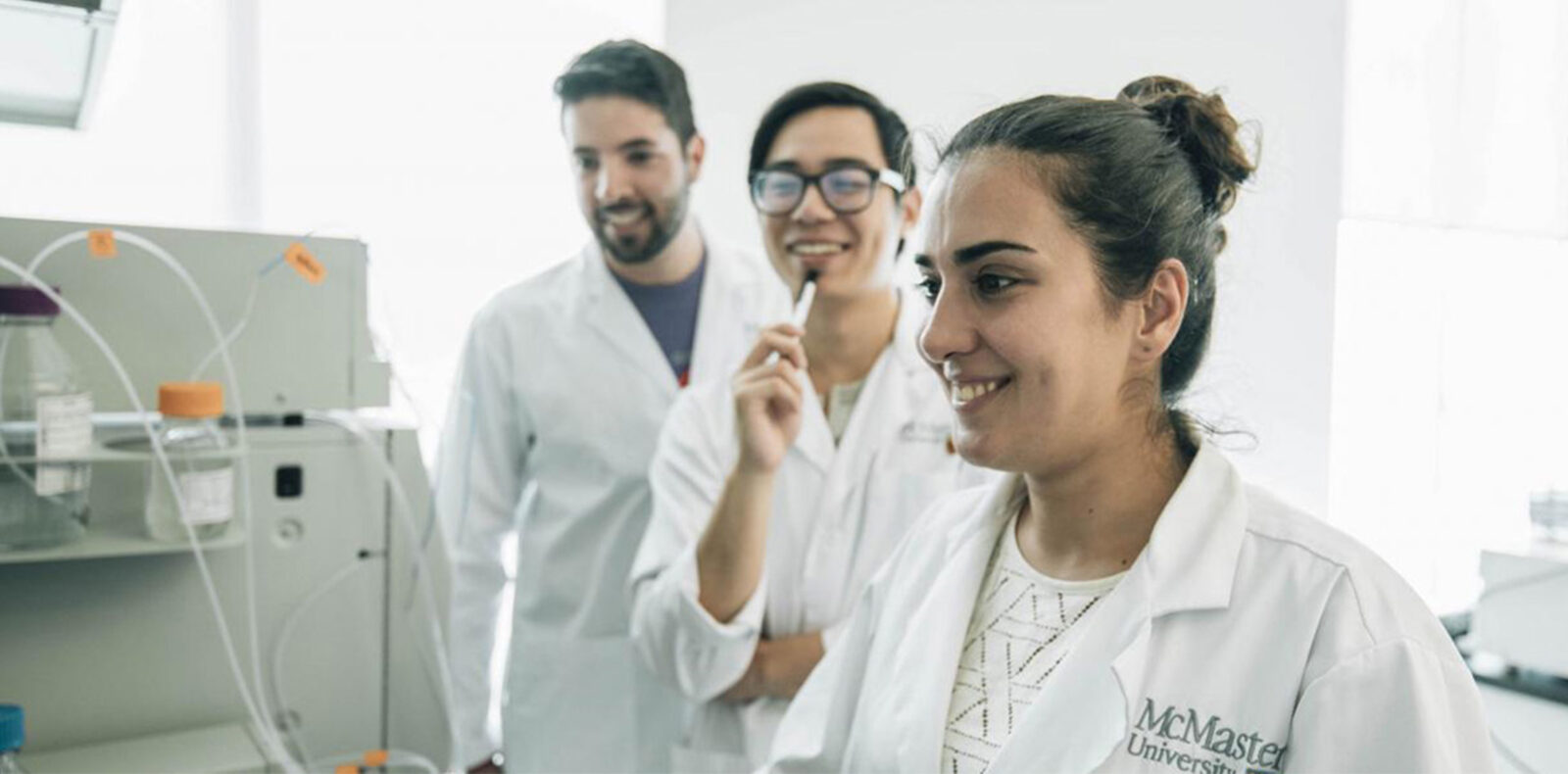“I am employed by Canadian Nuclear Laboratories (CNL) in Chalk River, Ontario as a research scientist. McMaster’s Industrial Engineering PhD program has offered me the opportunity to complete my doctorate while working full time. In my role at CNL, I’ve had the good fortune to pursue a wide range of industrially-relevant research investigating nuclear safety issues. In parallel, access to faculty at McMaster has exposed me to different perspectives and ideas. Given these resources, I aim to produce a thesis in the near future combining the ‘best of both worlds’ – industrial relevance and academic rigour.”
McMaster’s flexible Industrial PhD program enables students to remain in their own company or research institute and use labs at work to complete their research and eventual thesis
- Fast-track completion of your PhD while working full-time.
- Carry out your research in your company’s lab.
- Get ahead in your career.
Who qualifies?
- Student must be employed at a private company or research institute
- Self-funded, enrolled full-time for the first four years
- Has a thesis-based Masters in the STEM disciplines
- Faculty supervisor is expected to meet the student regularly, including frequent visits to the company (simple email communication will not be acceptable in place of face-to-face, video conferencing or teleconferencing)
- Research may be conducted on campus, but the majority of lab time is expected off-site at the employer’s facilities
- A signed memorandum of understanding is required between the employer, employee, department and faculty supervisor in regards to the requirements/milestones of the program, the project scope (which will recognize the need for public disclosure of the research),1 resources offered at the company and at the university, as well as the manner and frequency of meetings with the faculty supervisor. A formal study plan is required before the signing of the memorandum of understanding and will be affixed to the signed document.
- Student will be required to generate monthly reports sent to their faculty supervisor and department, to identify and track research progress
- All evaluation milestones must be conducted within the normal time frame of the program including the comprehensive exam, annual supervisory meetings, and the final thesis defense.
- Exemption from departmental seminar series, whether as a course or as a milestone.
- Must complete all program course requirements but 50% or less of these courses may be done at other universities under OVGS2 as would normally be the case.
- May transfer to the regular doctoral program so long as they remain full-time should they lose their position at the company or research institute. Funding and supervision should be handled consistent with the policies of Graduate Studies.
- By incorporating on site, company-based work this degree allows for industry-focused research that contributes to the innovation and growth of your firm. Employers are not only able to invest in an employee’s career development but also gain valuable, company specific knowledge transfer with this unique collaboration between the student, employer and supervising professor.
- Research done collaboratively between industry and universities often qualifies for SR&ED (Scientific Research and Experimental Development) tax refunds or credits both at the Federal and Provincial level.
- If your company is already filing under the Canada Revenue SR&ED claim program, a research project like this can strengthen your claim, help to elevate your overall approval chances and increase your tax refund/credit amount.
- If your company is not already filing under the Canada Revenue SR&ED claim program, a research project like this can bring in new funds – as high as 65% returns on your investment.
- Other government grants and subsidy programs are also available. The required supporting documentation is available as part of the Industrial PhD program deliverables.
The future of manufacturing is in higher levels of intelligent automation enabled by a systems-based approach.
Increasing connectivity and digitization continue to change our world.
Energy is essential to heat our homes, make our products and fuel our cars.
Respect for the environment must be at the core of all engineering decisions in the future.
Saving lives, improving health and wellness and overall quality of life are key goals of biomedical engineers.
Sustainable and properly planned infrastructure improves our transportation networks, roads, community buildings, water and waste water supplies and access to power.
Our devices, tools, and solutions are getting smaller.
The way we travel and transport our goods is changing dramatically.

